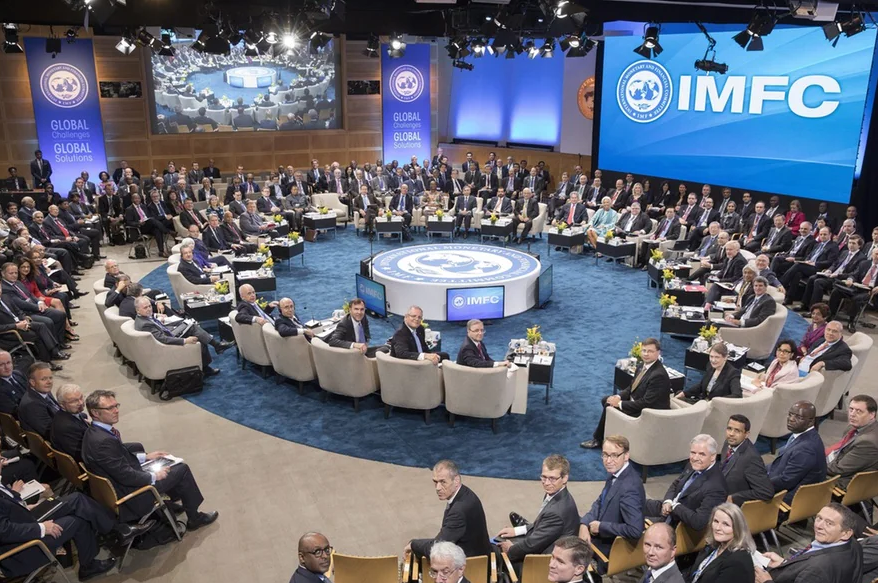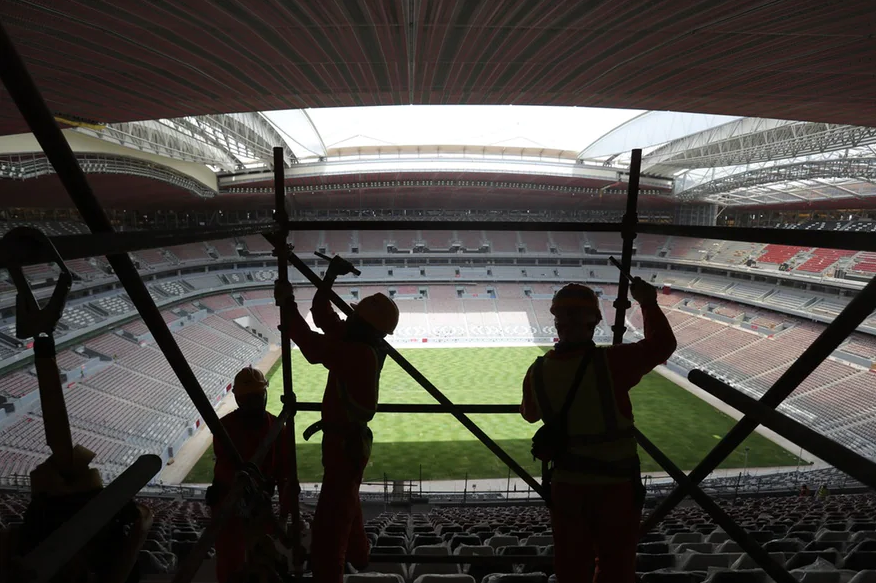A view of the Alps inside the Swiss pavilion at Expo 2020 Dubai. Www.sebastiencrettaz.com The Swiss pavilion at the ongoing Universal Exposition in Dubai leads the visitor through Alpine landscapes in a show of light and shadows to showcase Swiss sustainability, urbanisation and innovation. It is a concept that seems to appeal to the public, despite the pandemic and the many contradictions that characterise the Gulf region. With an investment of CHF16.5 million (.8 million), Switzerland was the first country to join Expo 2020 in DubaiExternal link. The investment has already proven worthwhile. Despite the challenges posed by the Covid-19 pandemic, the Swiss pavilion reached the 500,000-visitor mark within two months of opening. “The pavilion is always well
Topics:
Swissinfo considers the following as important: 3) Swiss Markets and News, 3.) Swissinfo Business and Economy, Featured, newsletter, Politics
This could be interesting, too:
RIA Team writes The Importance of Emergency Funds in Retirement Planning
Nachrichten Ticker - www.finanzen.ch writes Gesetzesvorschlag in Arizona: Wird Bitcoin bald zur Staatsreserve?
Nachrichten Ticker - www.finanzen.ch writes So bewegen sich Bitcoin & Co. heute
Nachrichten Ticker - www.finanzen.ch writes Aktueller Marktbericht zu Bitcoin & Co.
The Swiss pavilion at the ongoing Universal Exposition in Dubai leads the visitor through Alpine landscapes in a show of light and shadows to showcase Swiss sustainability, urbanisation and innovation. It is a concept that seems to appeal to the public, despite the pandemic and the many contradictions that characterise the Gulf region.
With an investment of CHF16.5 million ($17.8 million), Switzerland was the first country to join Expo 2020 in DubaiExternal link. The investment has already proven worthwhile. Despite the challenges posed by the Covid-19 pandemic, the Swiss pavilion reached the 500,000-visitor mark within two months of opening. “The pavilion is always well visited. It is a pleasure to witness that it meets such great interest among visitors,” says Manuel Salchli, commissioner general of the Swiss pavilion, over the phone.
Expo 2020 is expecting 25 million visits from around the globe over the course of the next six months. So far, the World Fair has registered more than 5,600,000 visits.
For the United Arab Emirates (UAE), the World Expo is an opportunity to attract companies and foreign investment. The country has spent more than CHF6 billion on the exhibition. Switzerland, on the other hand, aims to cultivate relations with its main trading partner in the Middle East and North Africa region. “Being present at the Expo is a great opportunity to consolidate and strengthen relations with the UAE and Dubai but also with the entire region,” says Salchli.
An ambitious project in the middle of a pandemic
Covering an area of 438 hectares, Expo 2020 is the largest international event since the start of the pandemic and already holds a number of records. It is the first time the World Fair is being held in a Middle Eastern country. This year, 192 countries are participating – a record equalled only by Shanghai in 2010 – and for the first time in Expo history, each has its own pavilion.
The exhibition focuses on three major themesExternal link: sustainability – in line with the United Nations Sustainable Development Goals – smart mobility and opportunities for a better future.
This is the concept behind the Swiss pavilion, which offers an “emotional and immersive experience in three acts”, a theatrical staging that moves from the Arabian desert to the Swiss mountains and to a city of the future. The visitors become protagonists in a game of mirrors, colours and soft lights dimmed by Alpine fog, only to re-emerge in an innovative and sustainable urban environment.
“Especially now that many people are glued to a computer due to the pandemic, we thirst for emotional experiences of this kind. That’s what the Swiss pavilion offers and it is one of the reasons for its success,” says Salchli. The Swiss pavilion is one of the most visited pavilions, together with those of Pakistan, India, Italy and Saudi Arabia, which recently recorded one million visits.
The Swiss pavilion is titled “Reflections”. This has a double meaning: the reflections that the pavilion’s mirrored façade creates, and a more introspective and profound reflection on the beauty of nature and sustainable development.
The last part of the pavilion features an exhibition that changes weekly according to the subthemes of the ExpoExternal link. These range from space exploration and climate to urban development and inclusiveness. The pavilion is sponsored by companies such as Schindler, Roche, Novartis and Nestlé.
Sustainability, in space and on Earth
The pavilion puts special emphasis on Switzerland’s innovative strength. Like many other countries, Switzerland is focusing heavily on sustainability, which is a key theme for the Expo. “Switzerland is convinced that innovation plays a key role for boosting sustainable development. As leaders in the field of innovation and recycling, we want to discuss and exchange on best practices,” says Salchli.
One of the most interesting Swiss projects showcased at Expo 2020 is ClearSpace, a start-up from the Swiss Federal Institute of Technology Lausanne (EPFL) that is creating an efficient and affordable system for removing useless space debris that litters the Earth’s orbit. This is one of EPFL’s flagship technologies, created with a mandate and funding from the European Space Agency (ESA), which selected it for the first debris removal mission.
Also noteworthy is the PlasticycleExternal link project by a group of Lebanese students who won a competition by the Swiss-Middle East Circular Economy for Youth Initiative. The students aim to provide a sustainable solution to plastic bag recycling in Lebanon by decomposing them into recycled pellets. The project is moving forward thanks to the collaboration of mentors and professors from Swiss universities. “It was exciting to see this group of promising young people commit to their truly extraordinary project and win the competition,” says Dante Larini, a project manager for SwissnexExternal link, which is running the pavilion together with Presence SwitzerlandExternal link.
The UAE: champions of sustainability and human rights?
Behind the scenes, Expo 2020 has nonetheless been tarnished by numerous controversies. Critics have pointed to the carbon footprint of the event in a country already heavily dependent on oil and gas exports – 30% of its gross domestic productExternal link.
“From my point of view, it is not a zero-sum calculation. In order to shape our future sustainably and find common solutions we need platforms where we can meet and exchange ideas. The expo is ideal for that as it brings people from different backgrounds together,” says Salchli.
With one of the highest rates of carbon emissions per capita in the world, ahead of Australia and the United States, the UAE has just launched an investment plan to reduce its carbon footprint and achieve zero emissions by 2050.
There are also concerns over human rights in the Gulf state. Shortly before the opening of Expo 2020, the European Parliament External linkdenounced grave human rights violations in the UAEExternal link and urged its member states to boycott the event. The appeal went unanswered. “As with other major events, Switzerland is committed to promoting and protecting human rights through dialogue rather than boycotts,” Léa Zürcher, spokesperson for the Swiss embassy in Abu Dhabi, wrote in an email reply.
There is also the issue of exploited migrant workers in the Gulf states. According to an investigation by The Guardian newspaperExternal link, workers at Expo 2020 Dubai were likely subjected to dangerous heat stress while working on the construction sites. When questioned on this point, the Swiss embassy claimed that it has always demanded and monitored compliance with recruitment and pay standards from its main contractors and subcontractors. “This is why [the embassy] carried out inspections at the construction site of the Swiss pavilion and in the accommodation of workers employed by our contractors in December 2019 and March 2020,” said Zürcher.
In October, the Expo had updatedExternal link the number of deceased workers to six (out of some 200,000 workers), including deaths related to Covid-19 and work on the construction sites. However, the organisation refuses to say whether there have been deaths due to other causes.
Tags: Featured,newsletter,Politics









